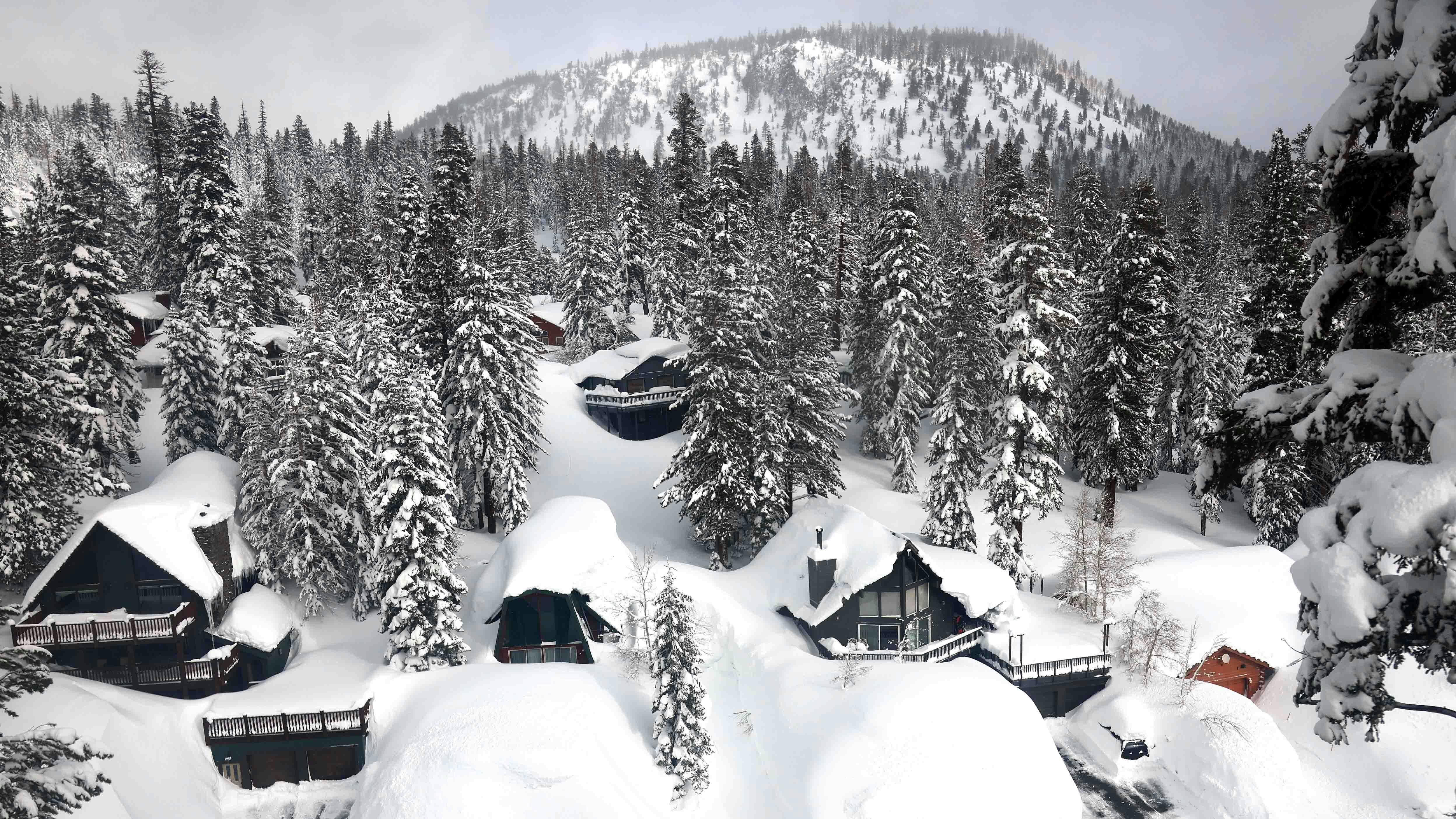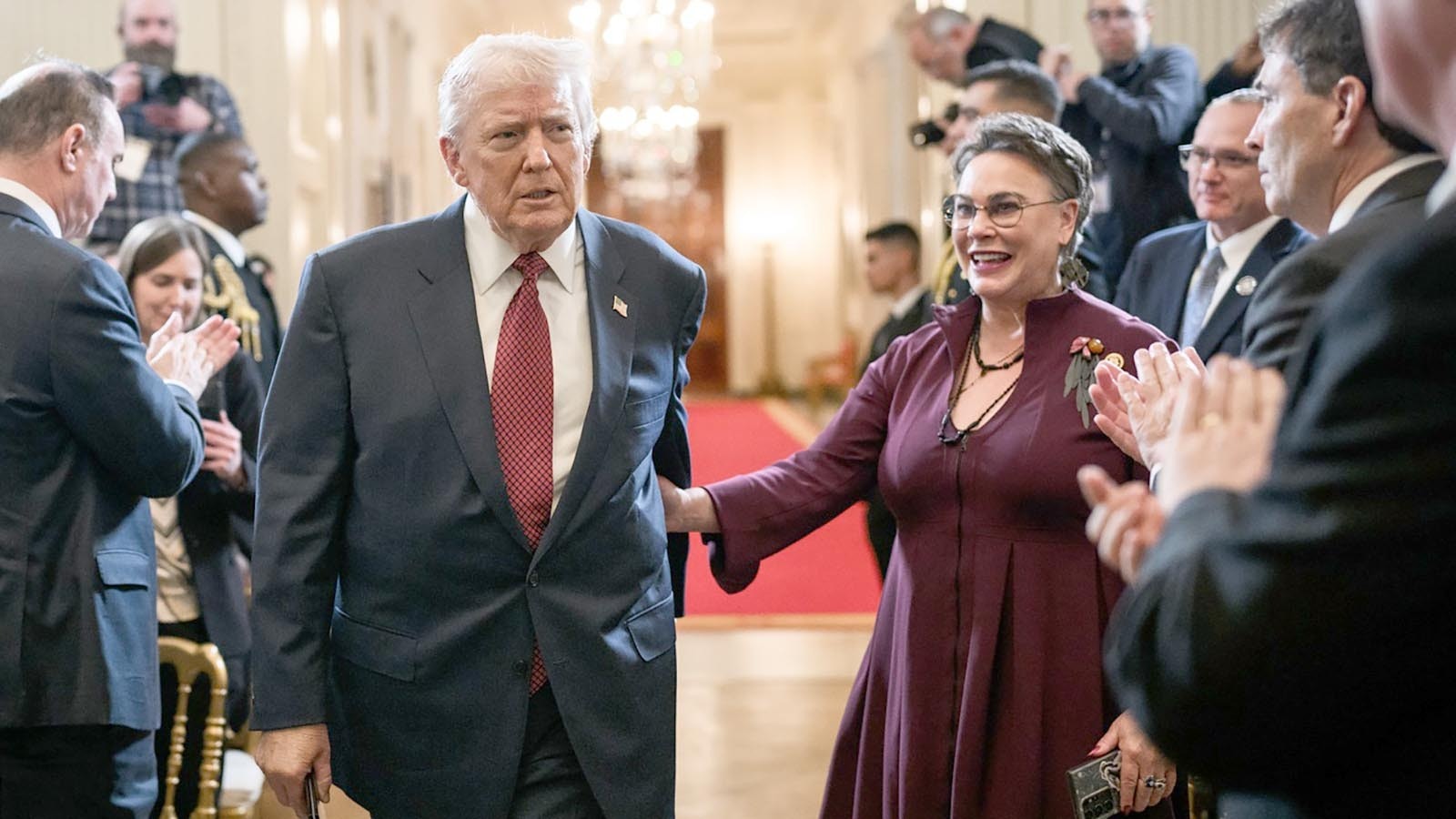The battle over how climate change should be taught in the classroom is getting hot.
Two weeks ago, the National Science Teacher Association kicked the CO2 Coalition out of its annual convention, even though the group had been approved and paid for their booth, and this week a fact check organization went after a textbook on climate change that presents a view of climate change that questions the doom and disaster narrative.
30 Facts
In February, the Heartland Institute, a conservative and libertarian think tank, published a textbook of 30 facts about climate change, which challenge the idea that it's causing a catastrophe threatening the existence of the human race.
The institute sent out 8,000 free copies to teachers, including several in Wyoming.
"Climate At A Glance: Facts on 30 Prominent Climate Topics" includes data showing, among other positive signs, that deaths from natural disasters are at historic lows, polar bears populations are growing, and crop yields are increasing.
The book has received overwhelmingly positive reviews on Amazon, where only one of those giving it a one-star review was a verified purchaser.
No Facts Checked
A 2021 study in the medical journal The Lancet showed that more than half of young people were feeling sad, anxious, angry, powerless, helpless and guilty over what they were being taught about climate change.
The textbook authors wanted to provide kids with what they say is a more accurate picture of the impacts of climate change and one that won't leave children feeling they have no future.
The book relies on data from the Intergovernmental Panel and Climate Change, an international consortium of the world's leading climate science, as well as U.S. government agencies, including NASA and the National Oceanic and Atmospheric Administration.
This week, AFP Fact Check, a department within Agence France-Presse, performed a fact check this week on "Climate At A Glance."
Dr. H. Sterling Burnett, one of the authors of the textbook, told Cowboy State Daily he was puzzled by the article, because they didn't really dispute any facts presented in the textbook.
"Which fact was checked? They supposedly check facts. I don't see a single piece of data or evidence where they checked a fact, as opposed to what they think the implication is of those facts we're trying to get at," Burnette said.
Hurricane Trends
AFP selected only six of the textbook's 30 facts, which the organization said were "misleading or lack context."
Among the claims in the textbook that the AFP was attempting dispute was "The United Nations Intergovernmental Panel on Climate Change (IPCC) has found no increase in the frequency or severity of hurricanes despite modest warming."
The AFP fact check confirmed the statement is entirely true.
"However, the global proportion of tropical cyclones reaching very intense (Category 4 or 5) levels is projected to increase," the AFP fact check states.
Anthony Watts, another author of the textbook, told Cowboy State Daily a projection or estimation of future trends is not a fact check on verifiable data of current trends, which the AFP fact checkers agreed was entirely factual.
Watts said the mistake stems from a broad bias in the climate community, as well as people that report on it, that a projection is just as good as hard data.
"That premise is totally false," Watts said.
Cowboy State Daily reached out to AFP to ask how a model of possible future increases, which can't be falsified, stands as a fact check for a statement the group agrees is entirely true. AFP didn't respond to that or any other questions about its fact check.
Crop Production
Burnett said the statements AFP fact checkers made concerning the textbook's section on the impacts of climate change on crop production were perplexing.
The textbook states that crop yields have set new records consistently every year, despite increasing amounts of carbon dioxide in the atmosphere, and that this is, in part, due to greater concentrations of the gas.
The AFP fact check confirms that experts agree yields are up during a period of increased temperatures and CO2 concentrations, but it argues that carbon dioxide in the air isn't good for sustainable agriculture.
The AFP was paraphrasing statements from the U.N. Food and Agriculture Organization, so it's not clear exactly what the organization was told, but Burnett said the statement is absurd.
"Of course they're [carbon dioxide and warm temperatures] are positive for crops. Walk into a greenhouse. There's a reason why they pump up the carbon dioxide and they're warm. Crops don't grow in Siberia. Warm is better," Burnett said.
Burnett pointed out that what sustainable agriculture means to climate activists is eliminating fossil fuels. This would mean no more modern farm machinery or modern fertilizers, which are derived from natural gas.
"I'm not convinced they don't understand that. They ignore it. They pretend like it's not the case," Burnett said.
Polar Bears
The AFP article also fact checks the textbook's claims about polar bear populations increasing. The AFP refers to experts questioning if data on polar bear populations in the past are reliable and that population trends are unknown.
Burnett said that polar bear populations were threatened by hunting in the 1970s, so treaties were passed to protect them. To claim that polar bear populations haven't responded to those treaties, Burnett said, isn't true.
"If they're saying that's bad data, then they're the ones that are lying. Even if you look at just the past 30 years of data, the trend is upward," Burnett said.
How To Think
The other sections of the AFP fact check on coral reefs, temperature records of the 1930s, and snow extent consist of experts who have different opinions about these issues. The authors of the textbook say debate and disagreement in science is normal, and the textbook provides teachers with classroom materials for lesson plans to present another side of the discussion that groups like the National Science Teachers Association and AFP don't want kids to even be aware of.
"These people are trying to teach students what to think, not how to think. And what science says as opposed to how science comes to conclusions and why they're testable," Burnett said.
Watt said the textbook was thoroughly vetted before it was published, and they had a number of experts weigh in to make sure the science was reliable.
"It was a good-faith process to make sure that the textbook was true and factual," Watts said.
Opinion Piece
Watts said the AFP article isn't so much a fact check on the textbook as an opinion piece trying to present a different perspective on climate change.
"Their fact check is highly dependent upon seeking out opinions, as opposed to going in and looking at the facts and the footnotes and the references that we've done," Watts said.
It is true that climate experts don't fully agree on every point concerning climate science, as much as it's claimed the science is settled. Burnett said it's a bad-faith argument to do a fact check by seeking out opinions that don't agree with the text being fact checked.
"Science is about debate and dispute. They don't want to debate," Burnette said.
Both the authors have said, aside from a few negative responses, the response from teachers who received copies have been mostly positive.
Kevin Killough can be reached at: Kevin@CowboyStateDaily.com





